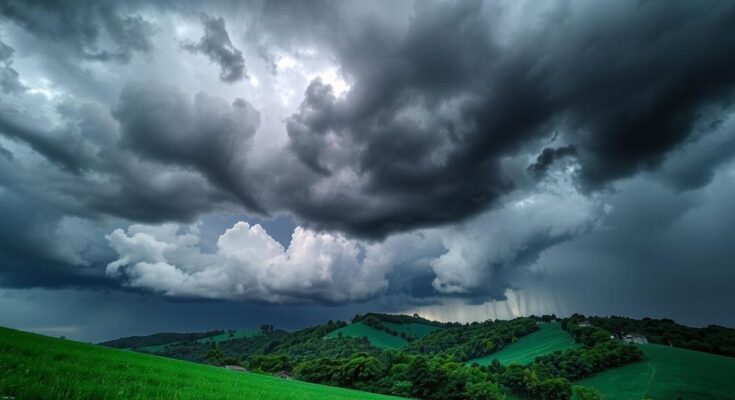Southern Botswana and eastern South Africa faced heavy rainfall from February 16-20, resulting in significant flooding that killed 31 people and affected thousands. A study indicates that climate change is increasing the likelihood of such extreme weather, prompting calls for improved flood resilience and infrastructure in urban areas.
In mid-February, southern Botswana and eastern South Africa experienced unprecedented rainfall, leading to significant flooding that claimed at least 31 lives and affected nearly 5,500 individuals in Botswana alone. Over 2,000 residents were evacuated from their homes. This extreme weather event has been linked to increasing global temperatures, as highlighted by a recent rapid study from the World Weather Attribution (WWA), a team of international climate scientists specializing in extreme weather effects.
The analysis revealed a rising trend in unusually wet five-day rainfall events, noting that such occurrences have become roughly 60% more intense due to an average global temperature rise of 1.3° Celsius (2.3° Fahrenheit) since preindustrial times. While the researchers could not definitively calculate the impact of human-induced climate change on the recent flooding, they acknowledged a correlation between climate warming and the frequency of severe rainfall events. Ben Clarke, a co-author of the report, stated the difficulty in quantifying contributions, noting that extreme rainfall events are likely to increase as climate conditions evolve.
Climate scientist Joyce Kimutai remarked, “As our climate continues to warm, it’s understood that this climate is likely to hold more water, and so it’s likely to cause intense rainfall,” indicating that insufficient infrastructure would exacerbate flooding risks. Report co-author Piet Kenabatho emphasized the urgent need for Gaborone, Botswana’s capital, to enhance its flood resilience through infrastructure improvements.
Kenabatho proposed implementing nature-based solutions to boost water absorption during rainstorms, emphasizing the importance of restoring vegetation in urban areas. While these initiatives are beneficial, they must be coupled with substantial enhancements to the city’s stormwater drainage system, allowing for effective water management during floods. He suggested that other African nations utilize managed aquifer recharge systems, which channel excess rainfall into underground aquifers, as a viable option. The coordinated efforts could significantly improve flood management in Gaborone and similar regions.
The flooding in Botswana following unprecedented rainfall highlights the critical impact of climate change and urbanization on weather patterns. Increasing rainfall intensity underscores the necessity for resilient infrastructure, particularly in urban areas. Effective solutions include integrating natural systems and upgrading drainage infrastructure to mitigate flooding risks. As climate conditions continue to evolve, proactive measures are essential for managing severe weather events and protecting vulnerable communities.
Original Source: news.mongabay.com




